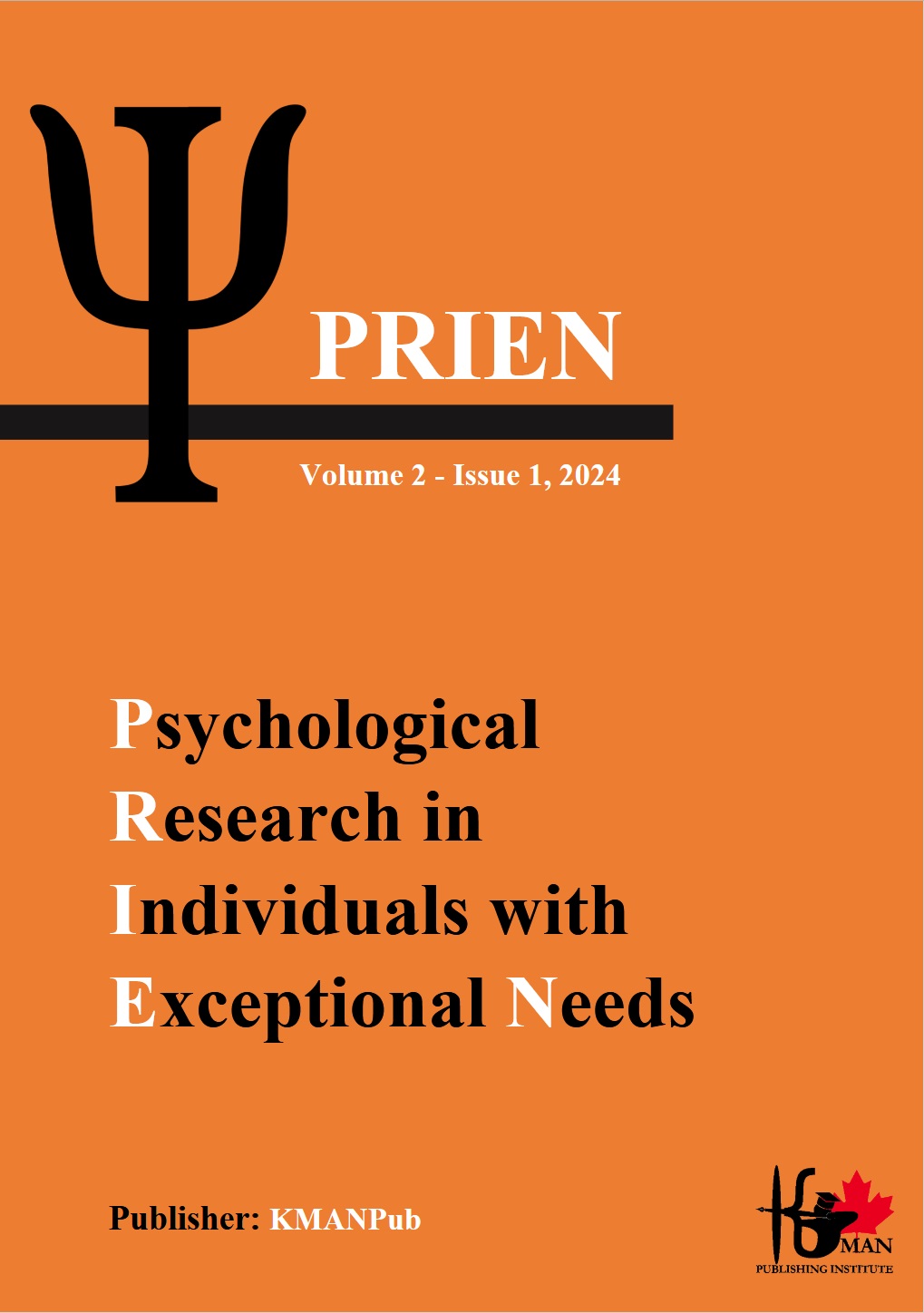Interpersonal Reconstructive Therapy: Improving Empathy and Conflict Resolution in Parents of Children with Autism
DOI:
https://doi.org/10.61838/kman.prien.2.1.6Keywords:
Interpersonal Reconstructive Therapy, empathy, conflict resolution, autism spectrum disorder, parental skillsAbstract
This study aimed to evaluate the effectiveness of Interpersonal Reconstructive Therapy (IRT) in enhancing empathy and conflict resolution skills among parents of autistic children. This randomized controlled trial included 30 parents of autistic children, divided into an intervention group (n = 15) receiving IRT and a control group (n = 15) receiving no intervention. Participants were assessed at baseline, post-intervention, and four months post-intervention using the Interpersonal Reactivity Index (IRI) and Conflict Resolution Styles Inventory (CRSI). Data analysis involved repeated measures ANOVA and Bonferroni post-hoc tests, conducted using SPSS-27. The intervention group showed significant improvements in empathy and conflict resolution scores. Empathy scores increased from 54.78 (SD = 5.32) at baseline to 67.32 (SD = 5.67) post-intervention and were maintained at 65.91 (SD = 5.42) at follow-up. Conflict resolution scores rose from 62.14 (SD = 6.23) to 74.89 (SD = 5.47) post-intervention, with scores at follow-up being 73.28 (SD = 5.63). ANOVA results indicated significant main effects for Time (empathy: F(2, 56) = 45.67, p < 0.001, η² = 0.62; conflict resolution: F(2, 56) = 49.18, p < 0.001, η² = 0.64), Group (empathy: F(1, 28) = 32.78, p < 0.001, η² = 0.54; conflict resolution: F(1, 28) = 35.91, p < 0.001, η² = 0.57), and Time × Group interactions (empathy: F(2, 56) = 41.23, p < 0.001, η² = 0.59; conflict resolution: F(2, 56) = 43.89, p < 0.001, η² = 0.60). Bonferroni post-hoc tests confirmed significant improvements from baseline to post-intervention and baseline to follow-up. IRT significantly enhances empathy and conflict resolution skills in parents of autistic children, with improvements maintained over a four-month period. These findings highlight the potential of IRT as an effective intervention to support parents in managing the challenges of raising children with autism.
Downloads
Downloads
Additional Files
Published
Issue
Section
License

This work is licensed under a Creative Commons Attribution-NonCommercial 4.0 International License.






